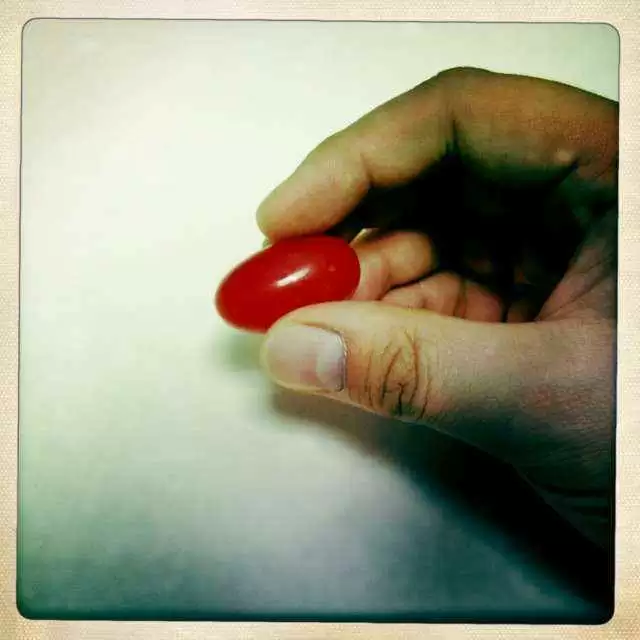
Celiac.com 02/22/2018 - I am writing this article hoping to help those who have been diagnosed with gluten intolerance but who are still not feeling well, as well as for those who need to be diagnosed or will be in the future.
Just to clarify our terms, I use 'gluten intolerance' as an umbrella term to encompass both celiac disease and gluten sensitivity.
Celiac.com Sponsor (A12):
I have the privilege of speaking with many individuals, on a weekly basis, who not only live in the locality of my clinic but also those who live across the United States and internationally. Just a few days ago I had phone consultations with individuals living in Shanghai, Philadelphia and Los Angeles.
My clinic, HealthNOW Medical Center, is a destination clinic where we treat individuals who live at a distance as well as those who live nearby, hence these particular calls. As a result of doing such consultations and receiving responses to my lectures, books, blogs and videos, I have an opportunity to speak with many people and hear their stories.
Frankly I often wish I had the ability to 'beam them up' utilizing the fictional technology from Star Trek—it would make travel logistics a piece of cake and I'd be able to help more people faster.
Getting back to reality, I want to review the most common mistakes and misconceptions that I run into with people who are gluten intolerant. These miscues are resulting in ill health both currently and in the individual's future.
Here's a list of 10:
1. People who are pretty convinced of their sensitivity based on their own experimentation but who later abandon their own knowledge when a celiac test is negative.
Discussion: Firstly, they should know that celiac testing is not highly sensitive. If it were, we would be diagnosing more than 5% of the celiacs in this country.
Secondly, a negative celiac test is NOT an absolute indicator that one doesn't have the disease, it in no way tests for gluten sensitivity, a serious condition affecting likely fifteen times the number of people who have celiac disease.
Finally, the gold standard test that we utilize here at HealthNow is one that has been established by other researchers to be quite reliable. It is the very test that this person is now ignoring. Namely, eliminating gluten for 30 days to see how you feel. A noticeable improvement in symptoms is a valid test.
Too often I speak with people who are quite seriously ill. They have ignored, sometimes for years, something they knew to be the truth simply because an insensitive lab test didn't corroborate their own identification of gluten intolerance.
Don't ignore the knowledge you possess about your body. If you need a lab test to affirm that knowledge, there's always genetic testing for both celiac disease and gluten sensitivity. Entero Labs has a good test for both.
2. Some people discover they are gluten intolerant by self experimentation or by actually receiving a gluten sensitivity or celiac blood test that has positive results. Unfortunately some doctors have antiquated data regarding these diseases and believe that an intestinal biopsy is needed to confirm a diagnosis.
Such doctors insist that their patients reintroduce gluten into their diet for a minimum of six weeks and then schedule an intestinal endoscopy and biopsy.
Discussion: It was once thought that a biopsy was the 'gold standard' for celiac diagnosis. We now know that to be untrue. When I say 'we' I am referring to those in the field who research or who stay on the cutting edge of research. Unfortunately there are many doctors who are not in this category and their lack of current knowledge puts their patients at great risk.
I cannot tell you how many times I have spoken with individuals who have reintroduced gluten into their diets, despite their knowledge of how sick it would make them, only to get extremely ill, sometimes for months. Worse still, some patients initiated an autoimmune disease due to the reintroduction that we couldn't completely reverse.
I call reintroducing gluten 'Russian roulette'. Perhaps you can now appreciate why.
One should NEVER EVER reintroduce gluten once they know they are sensitive to it, regardless of any test result. There is no test that is 'worth' risking your health over, especially not for a biopsy that is very poor at identifying the presence of non-classical celiac disease and gluten sensitivity.
That brings up some new terminology:
Classic celiac disease describes the disease as it was originally described as primarily digestive in nature, and associated with destruction of the lining of the small intestine. We now know, through research, that classical celiac forms a minority of celiac cases. Once again, these data are not well known in the medical community, which explains why we miss 95% of those who suffer from the disease.
Gluten sensitivity is an intolerance to gluten that is not associated with the destruction of the lining of the small intestine but it creates inflammation through the immune system and creates many of the same diseases and symptoms associated with celiac disease. Conservative estimates of the incidence of gluten sensitivity put it at 15% of the population, making it much more prevalent than celiac disease. Assuming other factors, an intestinal biopsy would not be positive in an individual with gluten sensitivity.
3. Individuals who try the gluten-free diet and find it difficult and decide to limit gluten instead of eliminating it, thinking that less gluten is bound to help.
Discussion: Unfortunately, whether you have celiac disease or gluten sensitivity, gluten consumption requires a zero tolerance policy. I like to tell patients that consuming gluten is a qualitative factor not a quantitative one. In other words, ANY gluten is problematic.
It does make intuitive sense that more of a toxic substance is bound to create greater harm than less, but with gluten intolerance that doesn't happen to be the case. It doesn't require much gluten to begin the cascade of inflammation that can create one of the more than 300 diseases and conditions associated with it.
4. A person does not exemplify the classic symptoms of celiac disease (see point #2 above for a definition) and therefore gets no cooperation from their doctor for appropriate testing.
Discussion: This scenario can result in many different repercussions. An individual can strongly suspect gluten intolerance based on observing their body's reactions to it, but due to the absence of classic digestive symptoms, their doctor refuses to test them and, worse yet, persuades them that gluten could not possibly be a problem!
This one frustrates me because the person knows, without question, that gluten is the culprit but they allow a clinician who is operating from a dated knowledge base, to cause them to doubt themselves, and, as a result, the patient damages their health even further.
I truly cannot tell you how often I hear such stories. These individuals feel completely adrift and helpless because they literally don't know where to turn for help. I'm glad when they find our clinic and we can validate what they know to be true and really get down to work to improve their health.
5. There are some individuals who cannot 'feel' the effects of cheating and due to this they continue to cheat and eat gluten.
Discussion: This is a tough one because it is human nature to avoid things that make us feel badly but it's more difficult if there are no obvious effects.
Someone who has been diagnosed as gluten intolerant is having a reaction to gluten and it is shortening their lifespan and moving them closer to disease, each and every time they cheat.
In the past, here at HealthNOW, we have used laboratory testing to 'show' patients that their immune system was registering their cheating and thereby (hopefully) convince them that damage is being caused.
Fortunately a new lab test by Cyrex Labs is due to be released this summer (2012) that will go a step further. This test will reveal if an autoimmune disease is being created as a result of consuming gluten and what part of the body is being targeted.
We may not 'feel' diseases in the making, so this test will be a wonderful asset to educating patients about what consequences they may be bringing on themselves as a result of their lax diet.
6. Some people 'cheat' expecting something dramatic to occur within a few hours and when it doesn't they think they are okay to cheat occasionally.
Discussion: This really is a point of poor education on the part of the doctor, their patient or both. We put in a lot of time with our patients to ensure that they understand that a reaction to gluten can occur within hours or days of ingesting it. We do our very best to ensure that patients understand that a headache or rash (as an example) that appears two days after a gluten 'cheat' is a reaction to that dietary indiscretion.
We also strive to ensure that they understand that the damage goes way beyond the symptom that they feel. It goes deeper to the degree that they are likely creating a degenerative or autoimmune disease with their lax diet.
7. I hear too many stories from people who actually received a positive blood test for celiac disease but who were then told by their doctor that the test was not 'for sure' and instead the doctor decided to concentrate on a different disease the patient had rather than prescribe a strict gluten-free diet.
Discussion: The above may strike you as a little unbelievable. I only wish it was. I don't know if certain clinicians just don't feel comfortable asking their patients to follow a diet that they might not want to follow, or what exactly the issue is. But the above scenario has come up often.
To add insult to injury the disease process that the doctor has decided to focus on rather than the celiac disease is often a disease CAUSED by gluten!
I distinctly remember a young adult woman who was told by her endocrinologist that they were going to focus on her diabetes rather than her celiac disease because it would be 'too much' to address both. There is strong research evidence of the correlation between celiac disease and diabetes, not to mention the fact that untreated celiac disease is known to increase the risk of death from all causes.
8. Individuals with known gluten intolerance let 'peer pressure' cause them to cheat.
Discussion: You might think that I'm only talking about children here but I'm not. As a matter a fact I often find my younger patients to be quite disciplined. Adults, however, do at times suffer from 'not wanting to be different' or 'not wanting to be rude' and they solve their dilemma by cheating.
My advice here is to explain to the person urging you to cheat that gluten is like rat poison to you. This works well for those people who say, "Come on, a little won't kill you…". Ask the person how they would feel if you offered them 'just a little' rat poison. Would they take it? After all, it's just a little.
You get my point. I've been doing this for more than twenty years and patients report that this example does seem to communicate well to others. Feel free to utilize whatever talking points work best for you, but PLEASE, don't let peer pressure damage your good health.
9. Some people have close relatives they know to have celiac disease or other autoimmune diseases and they don't get tested for gluten intolerance because they're 'afraid to find out' or they don't feel too badly or they just don't know about the strong correlation between gluten intolerance and autoimmune disease.
Discussion: There's a saying that goes, "What you don't know can't hurt you." Unfortunately that's not true for people with gluten intolerance. Deciding not to get tested doesn't diminish or slow down gluten's degenerative effects.
Gluten isn't something you can hide from. If gluten intolerance or autoimmune diseases are a part of your family tree I would strongly suggest that you get tested for both celiac disease and gluten sensitivity and if negative, confirm the accuracy or inaccuracy of that test result with a thirty day gluten elimination diet.
It is that important that you know for sure that you are not part of the genetic predisposition that is present in your family tree.
10. Patients eliminate gluten due to a diagnosis of gluten intolerance but after initially feeling much better, they begin to feel poorly again and don't know what to do to correct the problem.
Discussion: This may be the last point on our list but it certainly is not the least important. In fact, when I'm talking with individuals who know they have celiac disease or gluten sensitivity, this is one of the most common complaints I hear.
Unfortunately the medical profession's sole treatment strategy for celiac disease is gluten avoidance, period. I wish that was enough, but for the vast majority of people it isn't.
The secondary effects created by gluten intolerance do not remedy themselves when gluten is removed from the diet. Gluten has a devastating effect on the body's immune system and in order to normalize that immune system there are several factors that must be addressed, the most common of which follow:
a. The presence of pathogenic (disease-causing) organisms. These can be bacteria, parasites, amoeba, etc., but they must be discovered and treated in order to remove excess stress from the immune system and to allow vital healing of the small intestine.
b. An imbalance of the good bacteria or probiotic population in the small intestine. These probiotics (or microbiome) account for the strength of the immune system and supporting their restoration to a healthy, robust level is critical for the immune system as well as the prevention of disease.
c. Cross-reactive foods can be part of the patient's diet and these foods can mimic the effects of gluten thereby preventing healing and causing gluten-related symptoms despite a gluten-free diet. These foods are often temporary irritants while the body is healing but we have found some patients who require permanent elimination of some of these foods.
d. Hormonal imbalance created by the stress on the body that gluten creates is something that must be normalized through natural means in order to regain mental balance, increased energy levels and normalized weight, just to name a few.
e. Toxic elements including heavy metals and poor detoxification abilities of the body are also a potential hurdle that needs to be overcome when restoring health to someone who is gluten intolerant.
f. Enzyme and vitamin deficiencies should be evaluated and treated as they are discovered.
Basically, the stress on the system that gluten has created must be diagnosed and remedied in order for the individual to regain optimal health.
Addressing these secondary effects is not complicated. It takes the knowledge of what they are, how to correctly test for them and how to effectively treat them, but this is not difficult. The lack of widespread awareness of these factors results in many individuals continuing to suffer despite maintaining their gluten-free lifestyle.
This just isn't fair and it's something I am passionate about remedying. I hope you found this helpful for yourself, a family member or a close friend. Feel free to contact me if you need assistance. I'm here to help and welcome you to give me a call for a free health analysis. Call 408-733-0400.











Recommended Comments
Create an account or sign in to comment
You need to be a member in order to leave a comment
Create an account
Sign up for a new account in our community. It's easy!
Register a new accountSign in
Already have an account? Sign in here.
Sign In Now